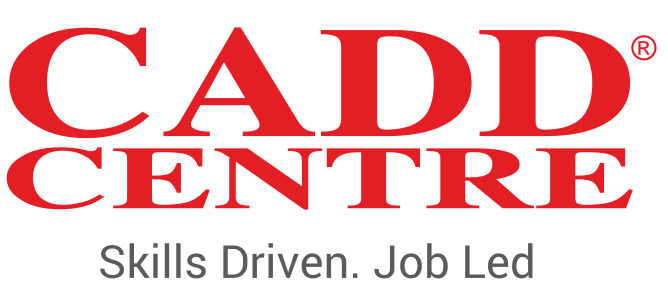Autodesk Revit Architecture is a Building Information Modelling software tool which allows users to design a building and its components in 3D, annotate the model with 2D drafting elements and access building information from the building models database. Revit comes with tools to plan and track various stages in the building’s lifecycle, from concept to construction and later demolition.
Autodesk Revit MEP Revit programming, from Autodesk, gives mechanical, electrical and plumbing (MEP) engineers with devices to plan the simulation capable MEP designs using the software Autodesk Revit. Revit MEP helps creators upgrade joint effort, investigation, outline, perception, and documentation
Autodesk Navisworks Navisworks is a 3D outline audit bundle for Microsoft Windows. Navisworks allows clients to open and collectively consolidate 3D models and constantly monitor, add remarks store data in a database, redline, perspectives and estimations. These 3D models and data can come from various software like Autodesk Revit, AutoCAD and MicroStation. A determination of modules improves the bundle including obstruction location, 4D time reproduction, photorealistic rendering and PDF-like circulating.
Oracle Primavera is a software tool that is used to initiate, plan, execute, monitor & control, and complete a project within the estimates of schedule, budget, and resources. Also, Oracle Primavera allows the ability to manage consecutive projects at the same time and maintain a portfolio.
Project Management Concepts introduces the student about much needed knowledge on the main strategic project management concepts
The Revit Architecture Module Contains
- Building Information Modelling (BIM) Concepts, Revit Architecture User Interface, Terminology
- Creating, Modifying Levels, Column Grids & Adding, Modifying Walls, Doors & Windows
- Creating & Modifying Floors, Roofs, Ceilings, Curtain Walls, Stairs & Railings
- Loading, Adding & Modifying Component Families (Furniture, Fixtures & Equipment)
- Creating & Managing Plan, Section, Elevation, & 3D Views, Controlling Visibility of Objects
- Using Dimensions, Alignments & Constraints to Control Object Positioning
- Creating Callout, Detailed & Drafting Views & Editing, Annotation & Detailing Tools
- Creating & Modifying Schedules, Legends & Keynotes
- Creating Drawing Sheets & Working with Title Blocks, Printing & Publishing Views & Sheets
- Working with Revit Linked Projects, Creating & Working with Component Groups
- Working with Mass Shapes for Conceptual Design & Converting to Building Components
- Creating & Using In-Place Families, Creating & Modifying Parametric & Nested Families
- Rendering the Model, Creating Sun & Shadow Studies and Walkthroughs
Revit MEP Module
- Introduction to Autodesk Revit MEP
- Starting MEP Projects
- Working with Views
- Understanding MEP Systems
- Spaces and Zones
- Performance Analysis
- HVAC Systems
- Hydronic Piping Systems
- Plumbing Systems
- Electrical Systems
- Creating Construction Documents
- Annotating Construction Documents
- Tags and Schedules
- Materials and Quantity Take off
Navisworks:
- Concepts of BIM & Construction Simulation
- Navisworks User Interface
- Model Navigation Tools
- Creating Object Animations
- Adding User Interactivity
- Rendering Tools
- Tasks & Time Liner Tool
- Link to External Project Files
- Manage Interferences
- Clash Detective Tool
- Working with Quantity Schedules
- Using Other supported file types
Oracle Primavera P6 Module
- Organizational Breakdown Structure
- Enterprise Project Structure
- Calendars – Defining Hourly & Daily Calendars
- Activity Definition, Sequencing & Estimating Duration
- Effectively Using the PDM Relationships & Scheduling the Project
- Defining & Assigning Active Codes, Project Codes, & WBS Codes
- Grouping Activities & Filtering Activities
- Preparing Resource Information
- Assigning Resources to Activities
- Estimating the Cost of the Project
- Analyse Resources by Using Resource Profile & Resource Table
- Resource Levelling
- Scheduling Multiple Projects & Preparing a Master Plan
- Preparing “S” Curve
- Tracking Project Progress & Highlighting the Progress in the Gantt Chart
- Earned Value Analysis
- Application of Global Change
- Preparing Different Types of Tabular & Graphical Reports According to the Industrial Need.
Project Management Module
- Project Management Knowledge Areas
- Scope Management
- Time Management
- Cost Management
- Quality Management
- Procurement Management
- Human Resource Management
- Communications Management
- Risk Management
- Integrations Management
Important Information
Certificate
- International CADD Centre certificate for all participants.
Deliverables from CADD Centre
- One set of CADD Centre Courseware on the topics chosen in the curriculum each per participants.
CADD Centre will depute an experienced faculty for conducting this Program.

